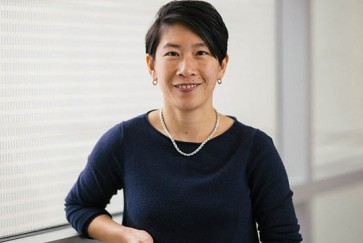Tarana Burke never planned to make a global movement. More than a decade before the #MeToo hashtag, Burke created the ‘me too.’ Movement to provide resources and support to survivors of sexual assault. And in October 2017, just days after Jodi Kantor and Meghan Twohey published their New York Times investigation of Harvey Weinstein, “me too” became a global rallying cry, catapulting Burke’s longtime work and mission to new heights.
“What actually happened on October 15 [2017] was people raised their hands to say, ‘me too,’” Burke told New York Magazine’s The Cut. “They opened up and said, ‘Yeah this happened to me.’ And it was millions of people from all walks of life, every stripe, and I really feel like those people still have their hands up.”

Planting the seeds
Burke has been an organizer, activist and advocate since she was a teenager. For many years, she organized healing circles in U.S. cities where survivors of sexual assault could share their stories and find support and community.
Her work with survivors, and personal experience of sexual violence, made clear to her the scale of the problem and the need for more resources. At a workshop in Alabama, Burke asked a group of about 30 high school girls to write “me too” on a worksheet if they needed help. Expecting to get back five or six me toos, Burke got 20.
Ever since, Burke’s message has been one of connection and the “far-reaching power of empathy.”
“I just try to carry the message I wanted when I was a kid: It’s not your fault, it’s not your shame, it’s not your blame,” Burke told The Washington Post. “Nothing’s wrong with you. There’s no special curse on you that made this happen.”
Burke is determined to change any perception of the ‘me too.’ Movement as anti-male, a gender war, or only intended for a certain group of people. The movement, she says, is about building a community of support for all survivors.
“Everyday people — queer, trans, disabled, men and women — are living in the aftermath of a trauma that tried, at the very worst, to take away their humanity,” Burke told Variety. “This movement at its core is about the restoration of that humanity.”
At the polls, and on campus
In addition to her current role as executive director of the ‘me too.' organization, she recently launched #MeTooVoter to engage voters — and the 2020 presidential candidates — to make sexual assault a key issue in the upcoming election.
And on Jan. 27, Burke will travel to Northwestern, where she will discuss the importance of the ‘me too.’ Movement and the story behind the viral 2017 TIME Person of The Year cover. Her remarks will be part of MLK Dream Week, which commemorates the life and legacy of Martin Luther King Jr. with a series of events from Jan. 15 to 28.
“Throughout his career, Martin Luther King Jr. called upon his fellow citizens to stand up to injustice and to persevere when the cause was just. Tarana Burke is one such citizen,” Northwestern University Provost Jonathan Holloway said. “Through her brave and enduring commitments to civil rights and social justice, especially as they relate to supporting the victims of sexual assault and abuse, she has elevated our collective awareness of how to move forward to a just and equitable world. We need more citizens like Tarana Burke, and I hope her visit to Northwestern will inspire members throughout our community to do what they can to make this world a better place.”
Burke will speak on the Chicago campus at noon in Northwestern Pritzker School of Law’s Thorne Auditorium, 375 E. Chicago Ave., and at 5 p.m. on the Evanston campus at Pick-Staiger Concert Hall, 50 Arts Circle Drive.
Both events are free and open to the public. The Evanston campus event is at capacity. Evanston ticket holders must present their reservation upon admission. Please consider traveling downtown if possible. Seating for the Chicago campus event is limited and available on a first-come, first-served basis.

